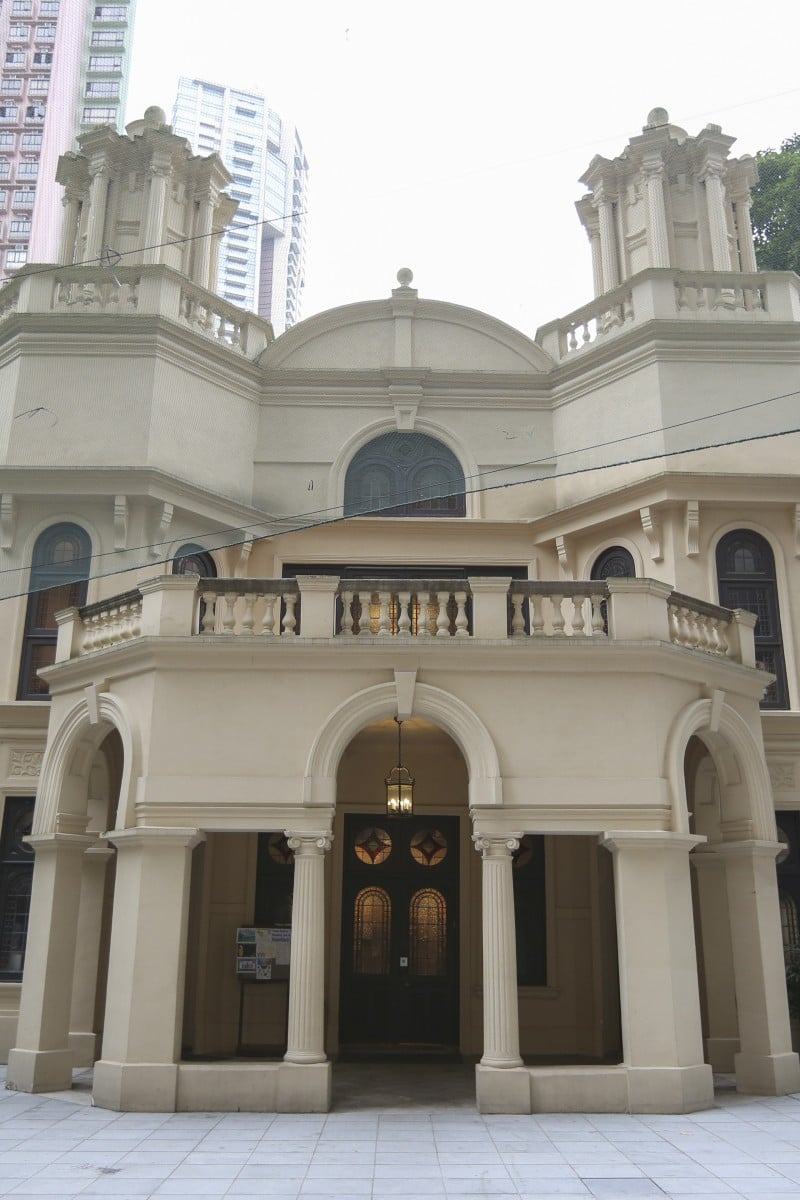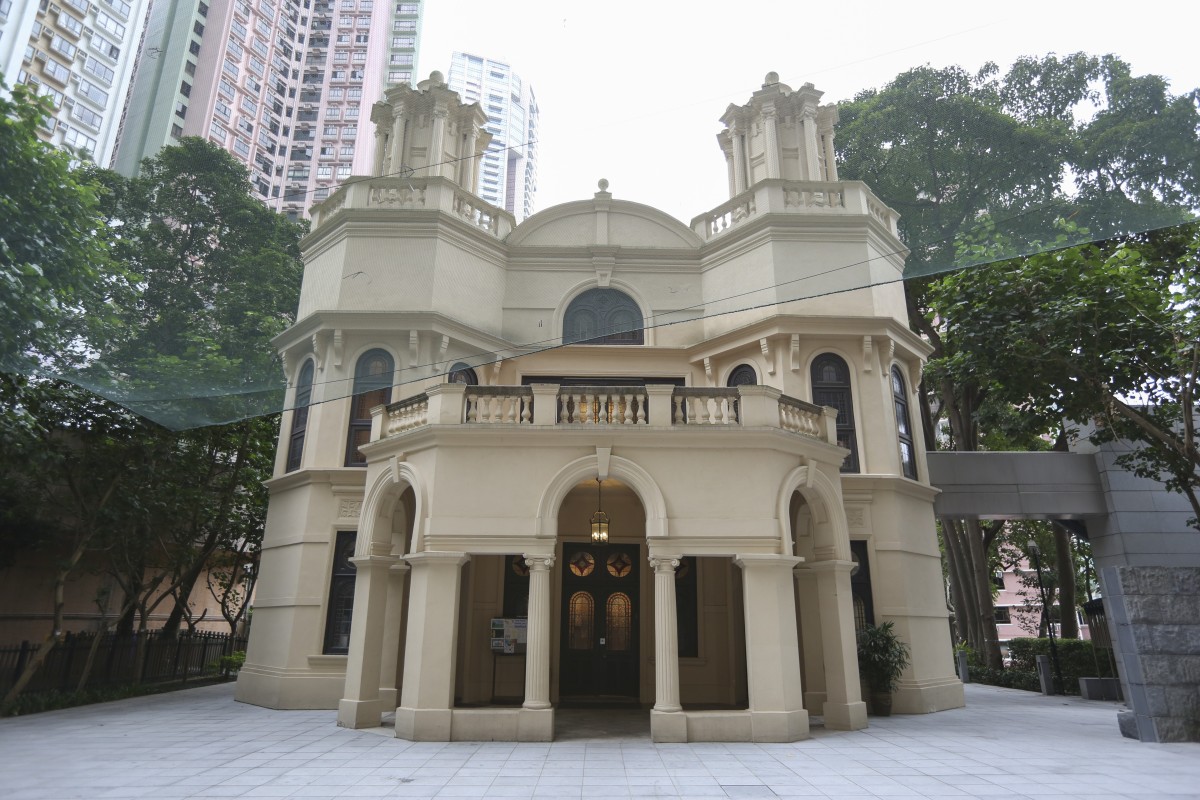
Jews in HK have played a huge role in its development, including helping new immigrants from the mainland after political unrest.
 The Ohel Leah Synagogue (above) survived Japanese Occupation during the second world war, while the Kadoorie Estates (main) were built in the years after it.
The Ohel Leah Synagogue (above) survived Japanese Occupation during the second world war, while the Kadoorie Estates (main) were built in the years after it. It’s the longest thoroughfare in Hong Kong, and certainly one of the busiest, but Nathan Road was once just another muddy pathway in Kowloon. From its humble origins, it has evolved into a cosmopolitan hub, crammed with shops, hotels and residences, and lit up by rows of neon signs.
The road is named after a Jewish man, Sir Matthew Nathan, who served as the 13th governor of Hong Kong from 1904 to 1907.
Although his tenure was short, he is one of the many Jewish people to have contributed to the development of our city.
The Jewish community in Hong Kong can be traced back to 1842, with the arrival of the Sassoon family. Since then, this small group of ethnic minorities has grown to a population of around 5,000.
“Hong Kong is appealing because there already is an established community with the infrastructure to support Jewish life,” says Rabbi Asher Oser, who oversees the city’s famous Ohel Leah Synagogue. “It’s a place where Jews feel free to practise their faith without fear of anti-Semitism.”
The Ohel Leah Synagogue on Robinson Road has served Hong Kong Jewry for more than 100 years. Built by the Sassoon family – who also have a road named after them in Pok Fu Lam – in 1902, it has stood through much change in the city, even being used by the Japanese as a horse stable during the second world war.
Eighteen-year-old Tamie Davidson, a Carmel High School graduate, says the synagogue helps her feel connected both to her Jewish ancestry and Hong Kong’s history.
“Whenever I am in the synagogue, I think about what it must have been like during that time,” she says.
Today, the synagogue holds an important position in the community, providing education camps for young students and adults, and weekly food donations to the homeless.
But it isn’t not the only Jewish establishment to have played such an important role in shaping the Hong Kong we know today.
The Peninsula hotel, one of the city’s most iconic landmarks, was also founded by a Jewish family who made their home in Hong Kong: the Kadoories. Traces of their influence can still be found all over the city; there’s a Kadoorie Avenue, Sir Ellis Kadoorie School, and Kadoorie Farm & Botanic Gardens (KFBG), among other establishments.
Today, the gardens are kept for leisure and tourism, but in 1946, as political unrest spread through the mainland, the site was used to serve the resulting influx of immigrants.
Sir Horace Kadoorie, together with his brother Lord Lawrence Kadoorie, founded the Kadoorie Agricultural Aid Association (KAAA) to help these immigrants start a new life in Hong Kong. The KAAA offered agricultural training and interest-free loans, giving them the means to become self-sufficient in their new home.
In 1956, the KAAA set up an experimental farm at Paak Ngau Shek, now the KFBG, to test new methods of crop production.
Zombie theories: Holocaust denial
The area also served as a training ground for both local farmers and Hong Kong-based Gurkha soldiers, to ensure they would have a stable income once they returned home to Nepal.
The local Jewish community is and will continue to be a tightly woven thread in the rich tapestry of Hong Kong.
“Jews are found in all walks of life and I see my role here as helping Jews to find their Jewish way in this city,” says Rabbi Oser. “The community brings a new layer of meaning to Hong Kong.”